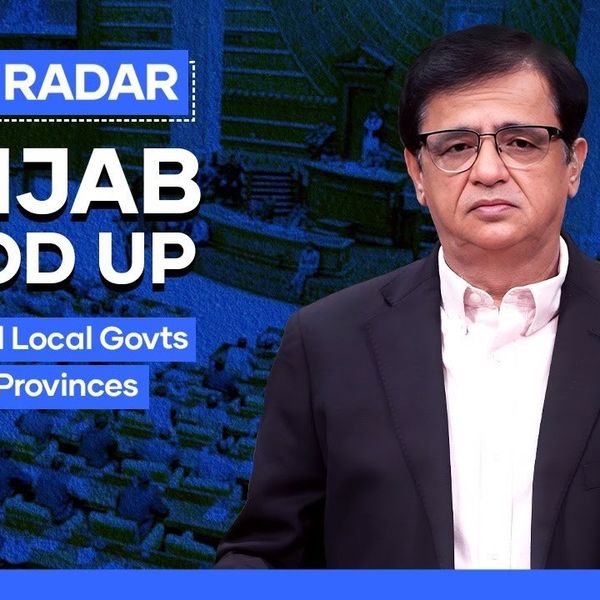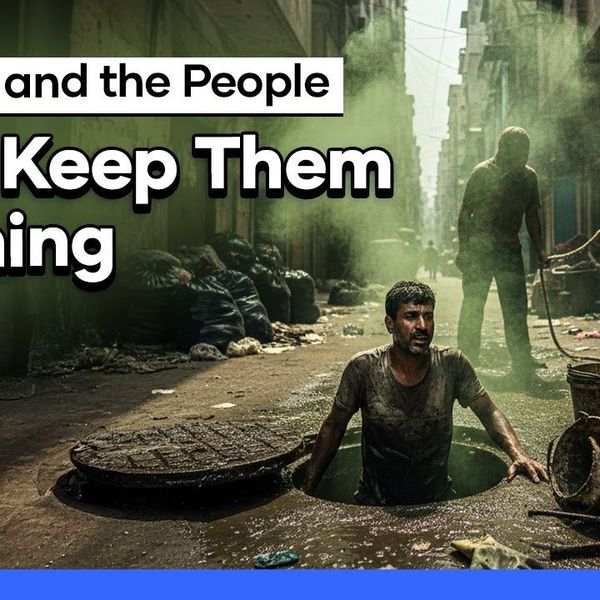From Imran’s arrest to election 2024: Kakar opens up in candid interview
In a podcast with Kamran Khan, former caretaker PM reflects on his surprise appointment and the challenges during his tenure
News Desk
The News Desk provides timely and factual coverage of national and international events, with an emphasis on accuracy and clarity.
Anwarul Haq Kakar, the former caretaker prime minister of Pakistan, opened up about his political evolution, tracing his journey from joining the Pakistan Muslim League-Nawaz (PML-N) to co-founding the Balochistan Awami Party (BAP).
“I joined the Muslim League because of leaders like Sardar Abdur Rab Nishtar, Quaid-e-Azam, and Shabbir Ahmed Usmani,” Kakar said during a podcast with Kamran Khan.
Speaking about the alleged role of the establishment in politics, he added, “The establishment’s influence was evident during Zulfikar Ali Bhutto’s time with the PPP, then with the IJI, and later with PML-N. But all of them eventually adopted anti-establishment stances.”
Kakar contested the 2008 general elections on a PML-Q ticket but lost following Benazir Bhutto’s assassination. “By 2008, PML-Q was in a defensive position, so my natural fallback was PML-N,” he said.
In 2018, BAP was formed with a vision to strengthen federalism in Balochistan. “We wanted a platform that could counter separatism, lead the narrative battle, and improve governance,” Kakar said, reflecting on BAP’s founding ideals.
Appointment as caretaker PM
Kakar also shared insights into his appointment as caretaker prime minister, revealing he wasn’t aware of institutional consultations about his name.
“I thought I might be offered a cabinet position, but not some lead role,” he said. Kakar received a call from the Prime Minister’s House asking if he would accept the caretaker prime minister position. “I requested time to consult my family before agreeing,” he said. He was sworn in on August 14, 2022, two days after the announcement.
Taking responsibility for Imran Khan’s arrest
The former caretaker prime minister acknowledged the government’s involvement in decisions regarding Imran Khan’s arrest and party affairs.
“We fully accept responsibility for these decisions. Blaming the military might make things easier for me publicly, but accountability rests with us,” Kakar said.
He added that during cabinet meetings, disagreements with the military were resolved through dialogue. “When we presented our viewpoint, the army chief often acknowledged it and reconsidered his stance,” he said.
Crackdown on fuel smuggling in Balochistan
Kakar credited Chief of Army Staff (COAS) General Syed Asim Munir for spearheading a crackdown on fuel smuggling that had devastated the local economy.
“Diesel and petrol smuggling had become a financial suicide,” Kakar said. He revealed that before General Munir’s leadership, informal permission for smuggling existed within the military ranks.
“General Asim Munir deserves credit for understanding the issue’s depth and taking decisive action,” Kakar said, adding that smuggling profits, which ranged from PKR 30-50 billion monthly, enriched politicians and bureaucrats while leaving the laborers with nothing.
Imran’s role in TTP’s return
Kakar said that his disagreement with Imran Khan lies in his claim that General Bajwa was solely responsible for bringing the TTP back.
“Imran Khan himself supported the return. The TTP’s return was a joint decision by General Bajwa and Imran Khan, and Khan cannot be absolved of responsibility,” he added.
Currency crisis
Kakar detailed efforts to address Pakistan’s currency crisis during his tenure, emphasizing actions against illegal trade. “When we assumed office, the dollar was trading at 330-340,” he said, adding that informal currency trading fueled illegal activity.
“Illegal currency trade was generating PKR 200-500 billion monthly, much of which was laundered into foreign currencies,” he said.
To combat this, the government authorized only AAA-rated institutions to operate in the currency market and initiated a crackdown on others. “This reduced demand for dollars and stabilized the exchange rate,” Kakar said, noting that nearly $40 billion had left Pakistan through illegal channels in the past decade.
Challenges to reforms under SIFC
Kakar highlighted the challenges surrounding reforms under the Special Investment Facilitation Council (SIFC). “Our measures didn’t cause destruction, but no one owned them either,” Kakar said, questioning the lack of joint ownership for the reforms.
He explained that splitting the Federal Board of Revenue (FBR) into two units—one for tax collection and another for economic data—was proposed but not implemented. “If this isn’t the right model, no one has suggested an alternative,” he said.
“Our steps may be implemented a decade from now, but by then, it will be too late,” he warned.
Kakar also praised Fawad Hassan Fawad for cleaning up PIA’s bad debt and separating key assets. However, he criticized the lack of progress in selling the national carrier’s brand name. “We did the hard work. If you can’t even sell the brand name, the problem speaks for itself,” he said.
Kakar added that civil servants perceived SIFC as an imposed “super-idea.” “They view the cabinet as supreme, but everyone knew the SIFC decisions had to be implemented,” he said, describing the checks and balances introduced under the reforms.
‘Can’t claim 2024 elections were the most transparent’
Discussing the 2024 elections, Kakar said he couldn’t claim the polls were the most transparent in history. “Polling took place under my watch, so I can’t claim ignorance,” he said. “The February 8 elections were similar to others in the region. While some might suspect manipulation, there’s no evidence of institutional interference.”
Kakar acknowledged concerns about a lack of a level playing field, stating the government had to balance ensuring fairness and protecting state structures.
“One side was seen as the aggressor. A barrier had to be placed before them,” Kakar said. “When we protected state structures, it created the perception of bias.”
He also pointed out that delayed election results have raised suspicions in the past. “Such delays occurred in 2018 and 2013 as well. Proving or disproving allegations requires a proper process,” he said.
Blame on establishment
In his interview, the former caretaker premier also discussed the governance and political narrative challenges facing Pakistan. “Our two major challenges are governance and the political narrative,” Kakar said.
He criticized political parties for shifting the blame onto the military establishment when they fail to deliver. “When political parties fail, they portray the military establishment as the villain, claiming they were obstructed,” Kakar said.
He expressed frustration over politicians’ lack of interest in governance. “This triggers the military, and frustration begins to build when the standard of governance remains subpar,” Kakar explained, adding that instead of focusing on reforms, politicians often resort to questions of legitimacy. “They ask, ‘Who are you to criticize us?’ rather than addressing their non-performance,” he said.
Kakar accused civilian leaders of turning their shortcomings into confrontations. “Instead of responding to criticism with reforms, they open a new front,” he said. “Civilian leaders, including PTI, PML-N, and PPP, have all sought to ‘defeat’ the military, only to face setbacks.”
According to Kakar, the solution lies in strengthening civilian institutions, not weakening the military. “Pakistan’s problems cannot be solved by undermining the military but by fortifying civilian institutions,” he said.
He called for reforms in governance models and bureaucratic systems and urged political parties to take an active interest in governance. “The way to strengthen institutions is to fix the governance model, improve bureaucratic machinery, and ensure political parties are invested in good governance,” Kakar concluded.
Balochistan's identity crisis
Kakar addressed the identity crisis in Balochistan, linking it to broader global movements seeking statehood based on identity.
“There are several movements worldwide aiming for their own states based on identity. The question is: What is legitimate and what is illegitimate within the existing global order?” Kakar said.
He underscored that any discourse on breaking Pakistan under its Constitution is intolerable. “With India’s support, the Balochistan Liberation Army (BLA) only resorts to violence. They claim power through violence, telling their people they can kill anyone—from soldiers to civilians—and achieve freedom.”
Kakar rejected the BLA’s narrative, stating, “Any hand that rises against us must be pushed back. It’s unacceptable that someone targets individuals based on language, pulling them off buses in Musa Khel and killing them mercilessly.”
He emphasized that, except for a small liberal segment in India and Pakistan, the global community views the BLA as a terrorist organization.
“Some liberals argue using social science theories, saying Balochistan lacks roads, hospitals, and has faced 70 years of mistreatment. However, they fail to consider how modern global orders address violence,” Kakar remarked.
He drew parallels with other movements, saying, “Liberals dare not justify the violence of Hamas or Hezbollah, yet they excuse violence here. To me, this justification stems from intellectual dishonesty.”
Kakar questioned whether political parties forming militant wings, such as the PPP, PML-N, JUI-F, or PTI, would be acceptable. “The monopoly on violence must end in any state for citizens to live normal lives; otherwise, society descends into anarchy.”
Addressing dialogue, Kakar said it’s a misconception that negotiation is the only solution. “Dialogue is a tool of war, used to achieve objectives. We must decide whether engaging with separatists benefits us or not.”
He called for a balanced approach, saying, “At times, we focus solely on fighting or solely on dialogue, forgetting that both are tools aimed at achieving definitive outcomes.”











Comments
See what people are discussing